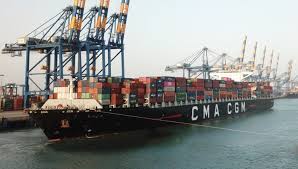Sajid Ali, Chief Operating Officer, Tech Mahindra Foundation,discusses essential skills for graduates, tech integration in education, challenges, promoting diversity, and industry collaboration for a dynamic logistics landscape.

Upskilling remains the key solution to navigating the evolving landscape of logistics careers
In the evolving cargo and logistics landscape, Sajid Ali highlights critical skills, including analytical skills, technical aptitude, and data analysis, alongside domain-specific knowledge such as supply chain management and regulatory compliance. Continuous upskilling is vital, given technological advancements, to ensure graduates remain competitive and adaptable to industry trends for sustained success.
Logistics techscape
In the realm of logistics education, technological advancements like AI, automation, AR, VR, blockchain, and IoT are revolutionizing the sector’s landscape. Institutes are swiftly integrating these innovations into their curriculum, producing graduates highly sought after by companies. Initiatives like ASCENT, a collaboration between GIZ GmbH and the Tech Mahindra Foundation, are reshaping the skilling ecosystem, introducing AR, VR, and the metaverse to prepare learners for the evolving job market. From comprehensive warehouse and transportation management software to emerging tech modules, students are equipped with the skills demanded by the industry. This educational evolution ensures graduates are not only proficient in traditional logistics but also adept at navigating the intricacies of modern technology, positioning them as valuable assets in the ever-changing logistics landscape.
Futureproofing
The future of logistics careers faces challenges like a talent gap due to youth unawareness, which makes talent acquisition difficult for skill development institutes. The dynamic nature of the sector, emphasizing technology and sustainability, presents both challenges and opportunities. To capitalize on these changes, professionals must prioritize continuous learning and embrace technological advancements for relevance. However, uncertainties like geo-political circumstances, economic fluctuations, and regulatory changes pose additional challenges, albeit beyond the control of entry-level and mid-level professionals. Thus, upskilling remains the key solution to navigating the evolving landscape of logistics careers.
Innovative education
Educational institutions cultivate an environment fostering innovation and entrepreneurial thinking in logistics professionals by integrating problem-solving skills, critical thinking, and project-based learning into the curriculum. Trainers equip students for research and live projects, providing hands-on problem-solving experiences. Regular industry interaction through visits, talks, internships, and mentorships exposes students to industry trends and entrepreneurial opportunities. Additionally, including modules on leadership and communication skills equips future entrepreneurs with essential abilities. By nurturing an environment that encourages creativity and forward-thinking, educational institutions prepare logistics professionals to adapt, innovate, and succeed in the dynamic landscape of the industry.
Diverse workforce
Promoting diversity and inclusion in the cargo and logistics sector requires leadership commitment, tailored training programs, and inclusive business policies. Despite ample talent, there’s a gender gap. Many companies now appoint diversity and inclusion managers and offer flexible work arrangements to address this.
Educational institutions for logistics collaborate with industry leaders to design curriculum aligned with workforce needs. Through ongoing interaction and expert insights, the curriculum stays relevant and updated. Exposure visits and internships provide students with practical experience, ensuring they’re well-prepared to meet the industry’s evolving demands. Such collaborative efforts between industry and academia create a world-class workforce adaptable to changing industry needs.











